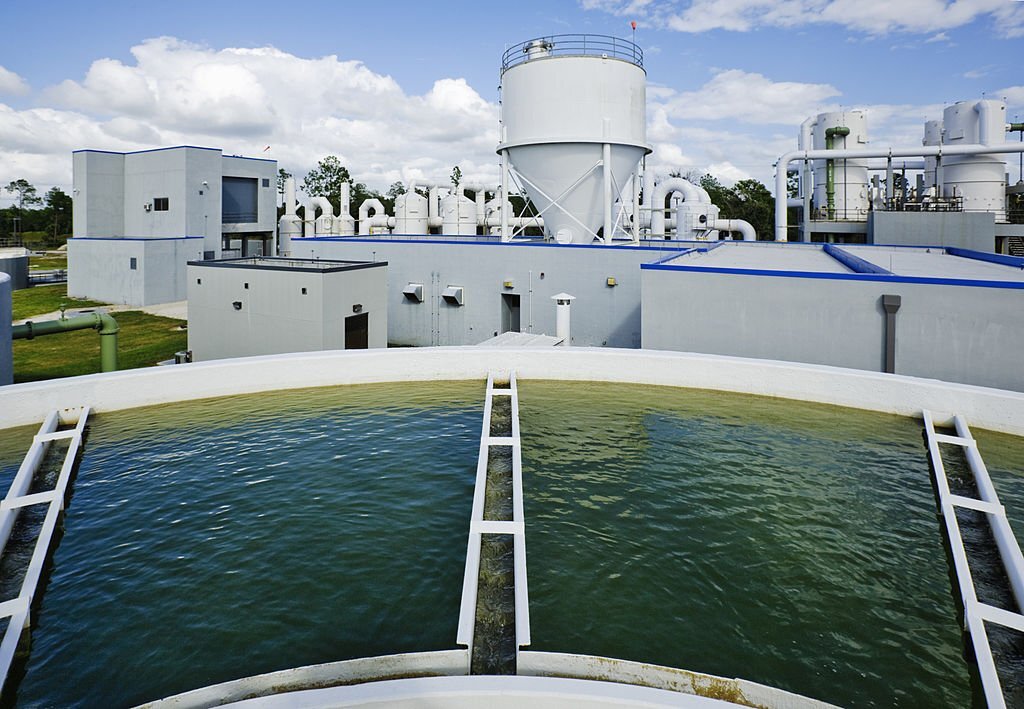Activated carbon filters are one of the most widely used water treatment methods around the world. Activated carbon is a form of carbon processed with a large surface area, making it highly effective in filtering out impurities and contaminants from water. The potential of activated carbon filters is vast, and they have numerous applications in various industries, including the water treatment industry. Read on to learn more about its applications in detail.

The Objective of Activated Carbon in Water Treatment
The primary objective of activated carbon filters in water treatment is to remove impurities and contaminants from water. Activated carbon effectively filters out a wide range of pollutants, including organic and inorganic contaminants, sediment, and unpleasant odours and tastes. Its high surface area helps to attract and adsorb these impurities, allowing the water to pass through, leaving behind cleaner and more purified water.
Activated carbon filters are commonly used with other filtration systems, such as reverse osmosis or ultraviolet radiation, to ensure complete water purification. They can also be used in standalone systems to remove specific impurities, such as chlorine, that can affect the taste and smell of water.
Different Applications of Activated Carbon Filters
Groundwater Cleanup
Groundwater contamination is a significant issue in many regions of the world, and it is a primary cause of waterborne diseases. Activated carbon is commonly used to clean up groundwater, particularly in areas where pollutants, such as industrial chemicals or agricultural runoff, have contaminated the water.
Activated carbon filters are effective in removing organic and inorganic contaminants, including volatile organic compounds (VOCs) and heavy metals, from groundwater. They are often used in combination with other filtration systems, such as reverse osmosis, to ensure complete water purification.
Service Water Treatment
Service water is used in many industrial processes, including cooling systems, boilers, and steam generators. The water used in these systems must be treated to remove impurities and contaminants that can cause corrosion or reduce the efficiency of the equipment.
Activated carbon filters are often used in service water treatment to remove chlorine and other chemicals that can affect water quality. They are also effective in removing sediment and other impurities that can clog pipes and reduce the efficiency of the equipment.
Drinking Water Purification
Activated carbon is commonly used in drinking water purification systems to remove impurities and contaminants that can affect the taste and smell of the water. It effectively removes chlorine and other chemicals in disinfection, sediment, and other organic and inorganic impurities. It also removes unpleasant tastes and odours, such as those caused by algae or bacteria, leaving behind cleaner and more purified water.
Boiler Feed Water Treatment
Boiler feed water must be treated to remove impurities and contaminants that can cause corrosion, clog pipes, or reduce the efficiency of the equipment. Activated carbon filters are often used in boiler-feed water treatment to remove chlorine and other chemicals affecting water quality. They can also remove organic and inorganic contaminants, such as VOCs and heavy metals, that can cause corrosion and damage to the equipment.
Condensate and Contact Water Treatment
In industrial processes such as cooling systems and steam generators, condensate and contact water are vital components that require appropriate treatment to eliminate impurities and contaminants. Chlorine and other chemicals can significantly impact water quality, and activated carbon filters are effective at removing them. In addition to the removal of chemicals, they can also eliminate sediment and other impurities. They are often used with other filtration systems, such as ion exchange or reverse osmosis, to ensure complete water purification.
Swimming Pool Water Treatment
Swimming pools must be treated to maintain a safe and clean environment for swimmers. An activated carbon water treatment system is often used in swimming pools to remove impurities and contaminants affecting water quality. It is effective in removing chlorine and other chemicals used in the disinfection process, as well as organic and inorganic contaminants, such as algae and bacteria. They can also remove unpleasant tastes and odours, leaving cleaner and more purified pool water.
Aquarium Water Treatment
Aquariums require a specific water quality to ensure the health and well-being of the fish and other aquatic animals. Activated carbon filters are commonly used in aquarium water treatment to remove impurities and contaminants that can affect water quality. They are effective in removing various chemicals and contaminants, such as chlorine, which is used in disinfection processes, as well as organic and inorganic impurities, such as ammonia and nitrate.
They are also useful in eliminating unpleasant odours and discolouration caused by decaying matter or algae in the aquarium. Aquarium owners can enjoy a healthier environment for their aquatic life by using activated carbon filters, which help promote growth and overall well-being.
Wastewater and Sewage Treatment
Wastewater and sewage treatment are critical to ensure the safety and health of the environment and human beings. Activated carbon is often used in wastewater and sewage treatment to remove contaminants that can cause harm to the environment and public health.
Activated carbon filters work by trapping and absorbing pollutants and organic compounds such as pesticides, industrial solvents, and pharmaceuticals. This process helps to remove unpleasant odours and colours from wastewater, making it safer for disposal or reuse. They are often used in combination with other filtration systems, such as biological treatment, to ensure complete wastewater and sewage treatment.
Landfill Seepage Treatment
Landfills are a significant source of pollution, and the leachate from the landfills can contain harmful contaminants that can cause harm to the environment and human beings. Activated carbon is used in landfill seepage treatment to remove impurities and contaminants from the leachate. It is effective in removing organic and inorganic contaminants, such as benzene and toluene, as well as unpleasant smells and colours. In addition, it can remove heavy metals, such as lead and cadmium, leaving a cleaner and more purified landfill seepage.
Beverage Industry
The beverage industry requires high-quality water for the production of its products, including soft drinks, beer, and bottled water. Activated carbon filters in the beverage industry remove impurities and contaminants that can affect the taste, odour, and appearance of the final product. They are capable of removing organic and inorganic contaminants, such as chlorine, pesticides, and herbicides, as well as unpleasant odours and tastes. They can also remove colour and turbidity, leaving behind a cleaner and more purified water source for beverage production. This ensures that the final product meets the strict quality standards of the beverage industry and is safe for human consumption.
Guidelines for Using Powdered Activated Carbon Filter:
- Determine the appropriate dosage: The powdered activated carbon (PAC) dosage will depend on the specific water treatment application. The amount of PAC required will vary depending on the type and concentration of contaminants in the water and the flow rate and contact time. Determining the appropriate dosage to achieve the desired water quality is important.
- Proper mixing: Proper mixing of the PAC with the water is essential for effective treatment. PAC should be added to the water slowly, with constant mixing, to ensure that the PAC is evenly distributed throughout the water. This helps to maximise contact time and ensure effective adsorption of contaminants.
- Contact time: The contact time between the PAC and the water is an important factor in the effectiveness of the treatment. Longer contact times generally result in better removal of contaminants. The appropriate contact time will depend on the specific application and the flow rate of the water.
- Filtration: After the PAC has been mixed with the water and allowed sufficient contact time, the water should be filtered to remove the PAC particles. The filtration system should be carefully designed to ensure that the particles are effectively removed from the water and do not cause clogging or other issues.
Our Activated Carbon Filters Are Ideal for the Following Applications:
- Pretreatment of a water treatment plant: Activated carbon filters can be used as a pretreatment step in a water treatment plant to remove organic and inorganic contaminants that can interfere with downstream treatment processes. This can help improve the treatment plant’s efficiency and reduce the chemicals required.
- Post-treatment of a wastewater treatment plant: They can be used as a post-treatment step in a wastewater treatment plant to remove residual contaminants that may remain after the primary treatment processes. This can help to improve the quality of the treated wastewater and reduce the environmental impact of the discharge.
- RO plant feed water: The filters can be used as a pre-treatment step in reverse osmosis (RO) plants to remove organic and inorganic contaminants that can interfere with the effectiveness of the RO membrane. This can help to improve the efficiency of the RO plant and prolong the life of the membrane.
- Water treatment plant: They can be used as a standalone treatment method in a water treatment plant to remove a wide range of contaminants, including organic and inorganic compounds, chlorine, and other disinfectants. This can help improve the water’s taste and odour and ensure it is safe for human consumption.
- De-chlorination: They can be used for de-chlorination of water, which is important in many industrial processes where chlorine can cause corrosion or other issues. This can help improve equipment efficiency and longevity and reduce maintenance costs.
- Organic component removal: Activated carbon filters are effective in removing a wide range of organic compounds, including pesticides, herbicides, and volatile organic compounds (VOCs). This can help protect the environment and ensure the water is safe for human consumption.
- Odour removal: They are effective in removing unpleasant odours from water, including those caused by chlorine, sulfur compounds, and other sources. This can help to improve the taste and overall quality of the water.
- Air purification: They can be used for air purification, particularly in industrial settings where there may be high levels of airborne contaminants. This can help to improve air quality and protect the health of workers and the environment.
- Catalyst removal: They can remove catalysts from chemical processes, which can be important for product quality and safety.
- Mercury removal: Activated carbon filters can remove mercury from water, particularly in industrial settings where mercury may be present in wastewater or groundwater. This can help to reduce the environmental impact of mercury and ensure that the water is safe for human consumption.
Get Tailored Activated Carbon Water Treatment Solution
If you’re looking for a customised activated carbon water treatment solution for your sewage treatment plants, drinking water facilities or other applications, look no further than Cleantech Water. Our high-quality activated carbon filters are designed to remove a wide range of contaminants from wastewater, ensuring they meet regulatory standards and are safe for release into the environment.
We understand that each water treatment plant has unique requirements, which is why we work closely with our clients to develop customised solutions that meet their specific needs. Our team of experienced professionals has a wealth of knowledge and expertise in activated carbon water treatment, and we are dedicated to providing the highest level of service and support to our clients.
So, if you want to ensure that your sewage treatment plant is operating at its best and meeting all necessary regulatory requirements, contact us today. Let us help you take the first step toward a cleaner, safer environment.
Also Read: Water Treatment: Application and Benefits Of Activated Carbon

